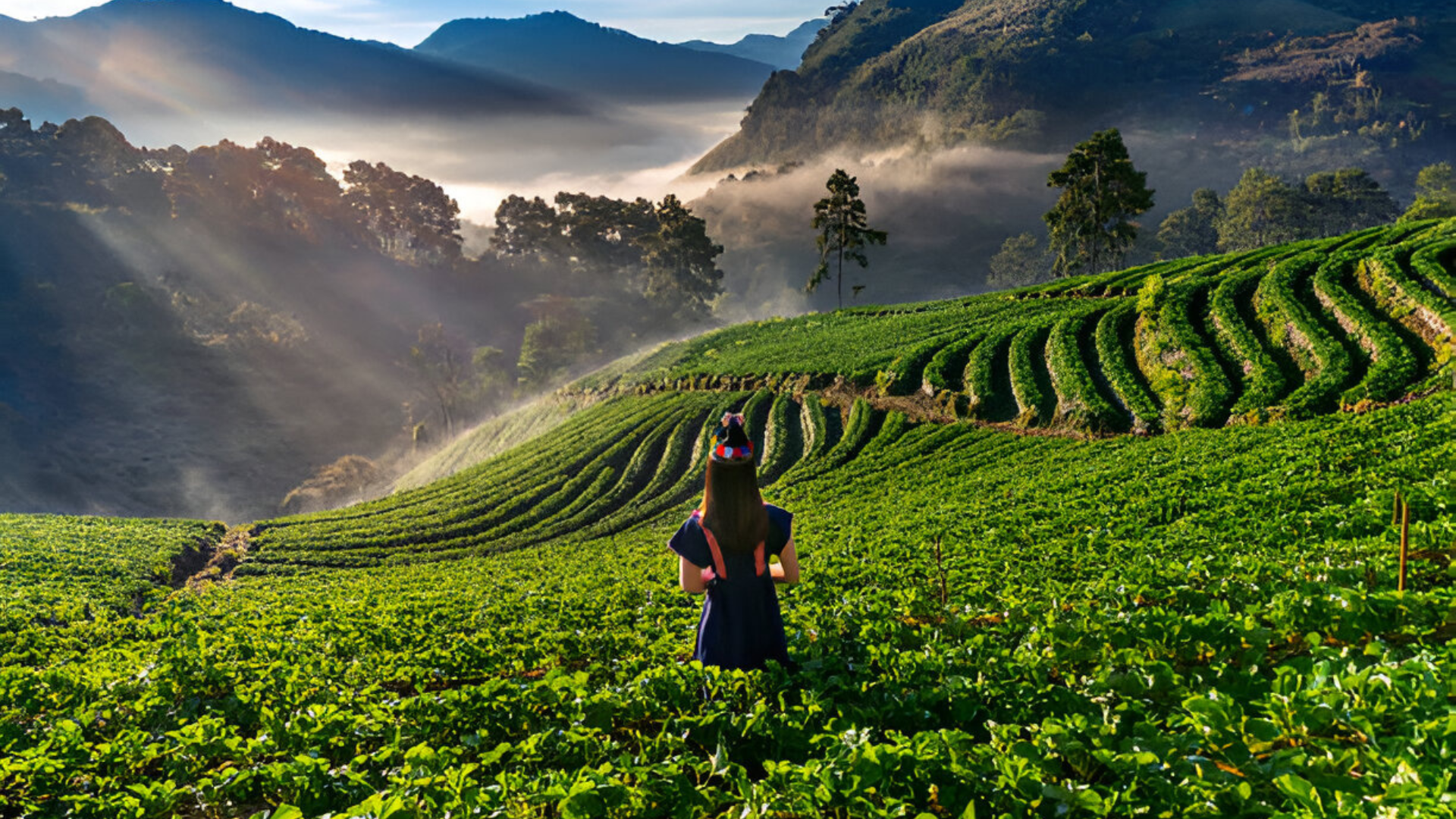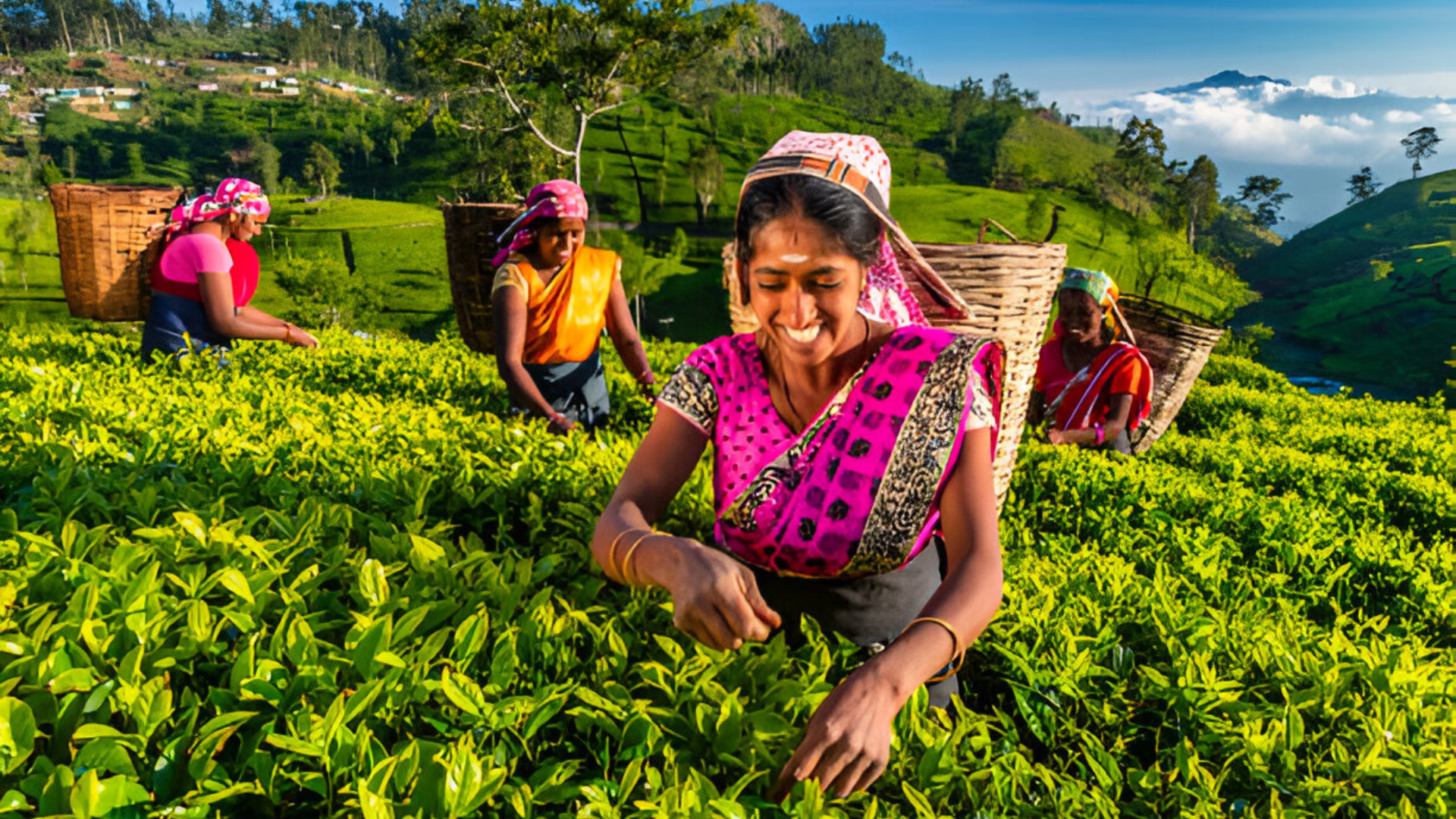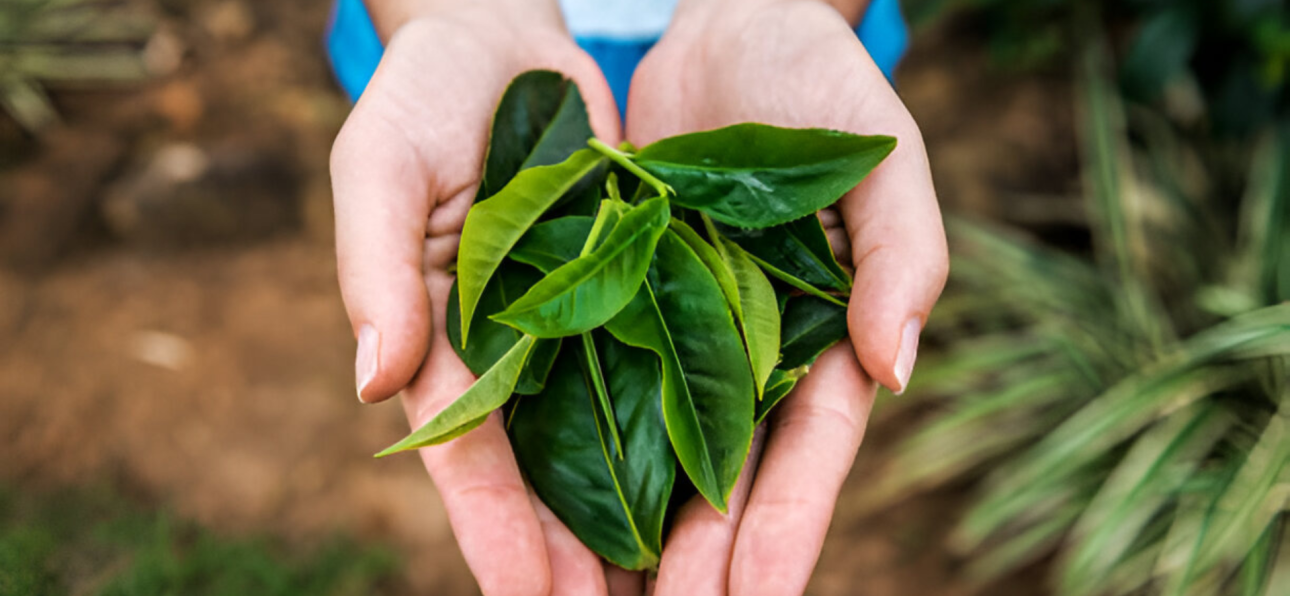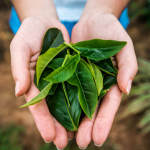Sri Lanka, formerly known as Ceylon, is renowned for producing some of the world’s finest teas. The country’s tea industry is a cornerstone of its economy and a significant draw for tourists seeking immersive experiences in lush plantations.
Tea Production and Global Standing
In 2023, Sri Lanka’s tea production reached approximately 256.03 million kilograms, marking a 1.7% increase from the previous year. This growth underscores the industry’s resilience and its pivotal role in the global tea market.


- Exploring the Tea Regions
- Sri Lanka’s diverse topography gives rise to distinct tea-growing regions, each offering unique flavors and experiences:
- Nuwara Eliya: Situated at elevations above 6,000 feet, this area produces light, fragrant teas. Visitors can explore estates like Pedro Tea Estate, witnessing the meticulous plucking and processing of high-grown teas.
- Kandy: As the birthplace of commercial tea production in Sri Lanka, Kandy offers mid-grown teas with robust flavor. The region’s plantations provide insights into traditional tea cultivation methods.
- Ella: Known for its picturesque landscapes, Ella’s tea estates offer tours that delve into the art of tea making, set against a backdrop of rolling hills and waterfalls.
Tea Tourism Experiences
Tea tourism has become increasingly popular, allowing visitors to immerse themselves in the rich heritage of Sri Lankan tea:
Guided Plantation Tours: Many estates offer guided walks through verdant tea fields, providing insights into cultivation and harvesting techniques. Tourists can engage in tea plucking and observe the intricate processing stages.

Tea Tasting Sessions: Visitors can participate in tasting sessions, sampling a variety of teas to appreciate subtle differences in flavor and aroma. These experiences often include lessons on brewing the perfect cup.
Colonial Bungalow Stays: Several plantations offer accommodations in restored colonial-era bungalows, providing a blend of luxury and history amidst serene landscapes. Guests can enjoy high tea on expansive verandas overlooking the plantations.
Economic and Cultural Significance
The tea industry is a major employer in Sri Lanka, providing livelihoods for over a million people. Beyond its economic impact, tea cultivation is deeply embedded in the cultural fabric of the nation, symbolizing hospitality and tradition.
Sri Lanka’s tea plantations offer more than just picturesque landscapes; they provide a journey into the heart of a nation steeped in tradition and renowned for its exceptional teas. Whether you’re a tea connoisseur or a traveler seeking unique cultural experiences, Sri Lanka’s tea country promises an unforgettable adventure.





